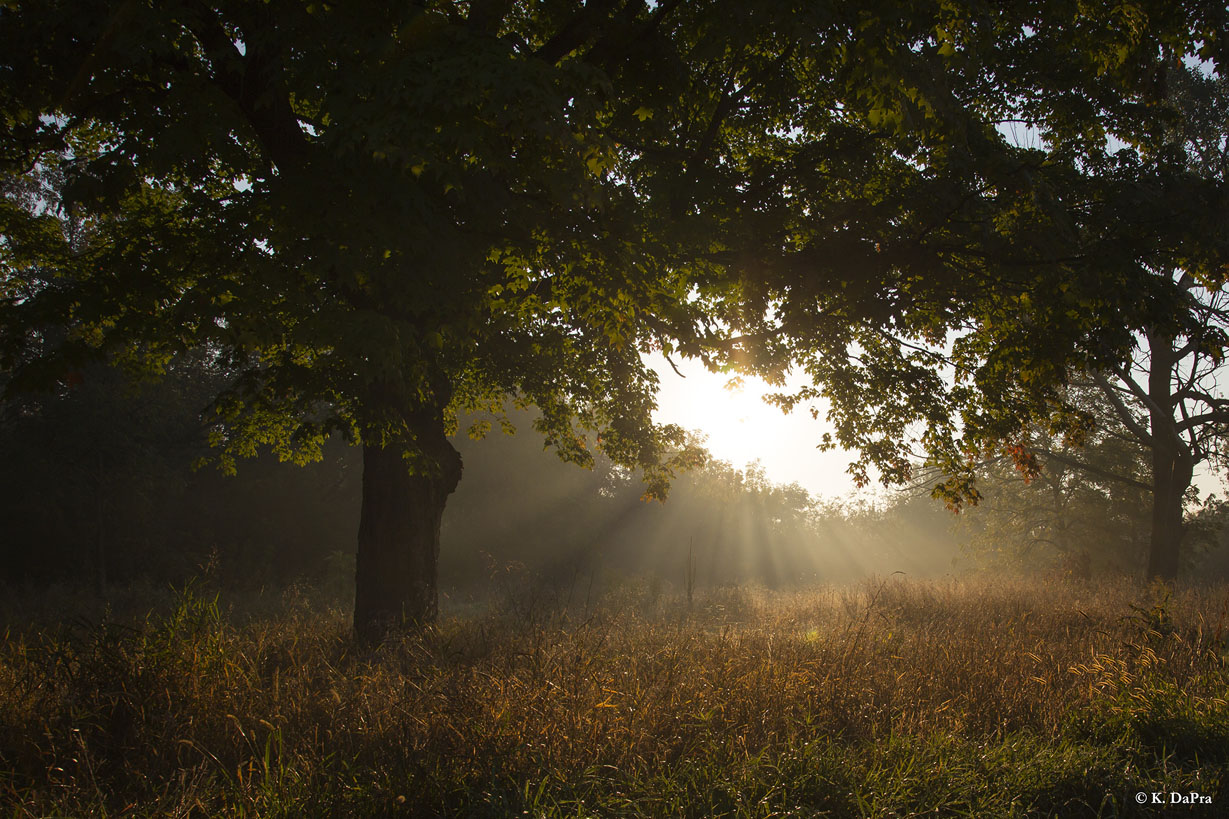Photo by Kris DaPra
By Cassandra West
We benefit tremendously from having trees in our yards, parks and along our greenways. They save energy, reduce heating bills and increase the value of our homes. Because they give so much, we should give back to them. How can we? It all starts with the soil, said arborist Dan Krug, who gave a two-hour talk, “Caring for Trees by Caring for the Soil: Good Dirt,” hosted by West Cook Wild Ones on Sept. 21 at Dominican University. Krug covered soil composition and chemistry and the importance of mulching.
It’s important to know that soil is filled with life, Krug said. Soil is host to many kinds of living organisms — fungi, bacteria, nemotodes, earthworms and arthropods. They’re all part of the Soil Food Web that can support tree health as they decompose organic matter.
Nearly 80 percent of tree problems can be traced to soil, Krug explained. The most common problem is soil compaction — especially in urban and suburban areas —most often caused by people, pets, bicycles and cars. Overly wet soil, nutrient deficiencies, pollutants and improper tree depth are other typical scenarios that tree specialists like Krug come across in local communities.
Krug also stressed the importance of yearly mulching because it adds nutrients to the clay-permeated soil found all over Oak Park and River Forest. Mulching is one of the best things a homeowner can do to promote tree health.
Mulch also:
Insulates the soil and provides a buffer from heat and cold temperatures.
Retains water, helping to keep the roots moist.
Keeps away the weeds, which helps prevent root competition.
Prevents soil compaction.
Reduces lawn mower damage.
Krug advises using local hardwood mulch. But don’t apply it too thickly or go for the volcano mulching, where the mulch is piled high against the trunk. That can kill a tree. Avoid cypress mulch, which may come from clear-cutting virgin trees in Southern wetlands.
And, with the coming barrage of fallen leaves, don’t be too quick to haul them away, Krug said. Leaf mulch is an abundant and free option. Leaf mulching is good for the trees, and good for the environment. You also don't need a special machine to shred leaves—a lawn mower with a bagger will collect leaves and cut them into the perfect size for mulching.

